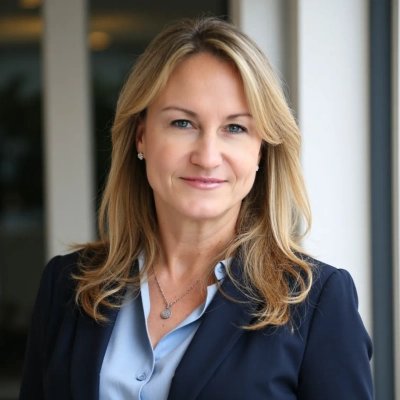Successful entrepreneurs often look beyond traditional investment strategies to grow their wealth. This article explores seven unconventional investment opportunities that have yielded significant returns for savvy business leaders. Drawing from expert insights, we’ll examine these alternative paths to financial growth, from niche agriculture to innovative real estate ventures.
- Invest in Niche Vertical Farms
- Build Payments Infrastructure for Overlooked Businesses
- Turn Unused Space into Profitable ADUs
- Scale Boring Businesses with Strong Execution
- Explore Fractional Ownership in Fine Art
- Discover Rewards in Boutique Vineyard Investments
- Invest in Personal and Business Coaching
Invest in Niche Vertical Farms
A few years ago, I put personal money into a niche startup building modular vertical farms—not for cities, but for remote mining camps and extreme climates. At first, it felt a bit out there. The founder came through spectup, couldn’t land VC interest, but had a clear value proposition and gritty determination. What sold me was the way he used logistics data to show how much money companies were wasting shipping lettuce into Antarctica, basically. The returns weren’t explosive, but stable, and surprisingly fast—corporates paid premium prices for predictability in fresh produce. I didn’t expect it to outperform more “sensible” SaaS bets that year, but it did.
If you’re curious about these kinds of bets, I’d say: go where others shrug. Don’t just chase trends—find overlooked problems that still have budgets behind them. Watch the founder more than the pitch deck, and talk to potential customers if you can. That’s what we do at spectup every day—pressure-testing unsexy ideas that end up quietly printing cash.
 Niclas Schlopsna
Niclas Schlopsna
Managing Consultant and CEO, spectup
Build Payments Infrastructure for Overlooked Businesses
I never expected to do better with a payments infrastructure for niche recurring businesses than a more “scalable” fintech bet—but that is exactly what happened with Pagoralia.
We built Pagoralia to serve a problem nobody seemed to care about: recurring payments in industries across which traditional processors will fail (local gyms, helicopter tours, private drivers are some). These businesses face chargebacks and failed payments due to inflexible systems. By building an API-first infrastructure around the realities of their operations, we were able to help our clients cut failed transactions by more than 30% and recover thousands in revenue—without painful integrations.
The contrarian part is we willfully avoided high-frequency or VC-friendly use cases. We honed in on reliability and trust for merchants facing real operational headaches. Some of our best relationships today are with merchants that Stripe has “forgotten” about, for example.
My suggestion: Don’t be afraid to niche down in fintech. If you understand the operational pain behind a payment flow—and you can help solve it better than the incumbents—you absolutely do not need volume to build a product that makes money. You need awareness, empathy, and willingness to go where the incumbents would never go.
 Martin Weidemann
Martin Weidemann
VP Fintech, Pagoralia.com
Turn Unused Space into Profitable ADUs
One unconventional investment I made that exceeded my expectations was purchasing and renting out a backyard accessory dwelling unit (ADU) on my primary property. Initially, it felt like a big leap—permits, construction costs (around $75,000), and managing tenants—but the monthly rental income quickly offset the upfront expense. Within a few years, it not only paid for itself but also added significant value to my home.
For others interested in similar opportunities, I’d recommend thoroughly researching your local zoning laws and rental demand. Start with a cost-benefit analysis, factoring in potential tax benefits and appreciation. ADUs are especially smart in areas with housing shortages or strong rental markets. Partnering with a reputable builder and getting legal advice upfront can help avoid costly surprises. It’s a creative way to turn unused space into a profitable asset.
 Joseph Commisso
Joseph Commisso
Owner, WeBuyHousesQuick.ca
Scale Boring Businesses with Strong Execution
One unconventional investment that exceeded my expectations was buying a laundry business in college. Most people overlooked it because it was routine, unglamorous work. However, it was my first exposure to the economics of a “boring” business, and thankfully, it worked. That laundry operation eventually grew into 2ULaundry and helped launch LaundroLab, a franchise brand built on operational discipline and repeatable systems.
The experience showed me that steady, service-based businesses can scale quickly when backed by strong execution. It also shaped how I think about opportunity today at Franzy, where we focus on helping others invest in proven franchise models with infrastructure already in place.
If you’re considering unconventional investments, start with sectors people ignore. You’re not looking for excitement; you’re looking for businesses that meet a need, run predictably, and reward operators who know how to build.
 Alex Smereczniak
Alex Smereczniak
Co-Founder & CEO, Franzy
Explore Fractional Ownership in Fine Art
Investing in fractional ownership of fine art proved to be an unexpected success, delivering impressive returns. The platform provided access to high-value pieces typically reserved for elite collectors. Diversification into this asset class offered stability during market volatility. Growing interest in alternative investments drove demand and appreciation in value. This experience highlighted the potential of non-traditional assets in a well-rounded portfolio.
Thorough research into platforms and their track records is essential to ensure credibility and transparency. Understanding the underlying market dynamics, such as demand trends and historical performance, helps in making informed decisions. Diversifying across multiple pieces or categories mitigates risk and enhances potential returns. Staying updated on industry developments and emerging opportunities ensures a competitive edge. Patience and a long-term perspective are key to maximizing gains in alternative investments.
 Linda Chavez
Linda Chavez
Founder & CEO, Seniors Life Insurance Finder
Discover Rewards in Boutique Vineyard Investments
I had a surprising experience investing in a fractional ownership of a boutique vineyard in Stellenbosch, South Africa. Initially motivated by my passion for wine rather than financial returns, I found the investment to be rewarding.
It generated annual dividends from wine sales and increasing land value. The vineyard offered unique experiences and limited-edition vintages, building community and brand loyalty. Additionally, I gained valuable networking opportunities and memorable moments during the harvest.
For anyone considering similar investments, I recommend thorough research to understand the market, risks, and regulations. Diversify your portfolio, seek expert advice, and ensure your investment aligns with your interests for success in unconventional markets.
 Dhari Alabdulhadi
Dhari Alabdulhadi
CTO and Founder, Ubuy Peru
Invest in Personal and Business Coaching
Investing in oneself with personal and business coaches has been the number one investment that has exceeded my expectations and helped catapult my professional career and personal mindset. When we are in high school and going to college, we need a coach for the SAT; if we are in any sport, we need a coach. If we are trying to professionally sing, we need a coach. Having a coach in so many areas seems normal, yet when it comes to business and mindset, most people don’t consider hiring a coach. But it’s a game-changer and exceeds every expectation and dollar spent.
 Jacqueline Salcines
Jacqueline Salcines
Founder, Attorney at Law, SALCINESLAW

